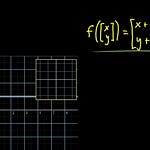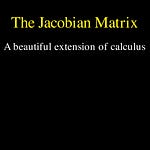Liu, Yue, The Philosophical Battle Between Dialectical Materialism and Idealistic Metaphysics: A Contemporary Analysis Through the Lens of Scientific Method (September 05, 2025). Available at SSRN: https://ssrn.com/abstract=5447975 or http://dx.doi.org/10.2139/ssrn.5447975
Why do laws of physics exist?
很多人认为世界上不存在绝对真理。很多人不相信数学结论。他们认为严谨数学逻辑得到的结论也可以是错误的。他们认为实验是检验理论的唯一标准,他们以为像炼丹术那样做实验,记录实验结果就是做科学研究。他们不相信理论,只相信实验结果, 他们不知道数学逻辑是学科理论的灵魂。这些观点完全违背牛顿时代人类取得最伟大的学科理论成就的科学时代结论。为了获得理论认知的做实验才可以说是科学研究。科学是形而上学唯心主义的胜利。
Liu, Yue, Theoretical Primacy in Scientific Inquiry: A Critique of the Empirical Orthodoxy in Modern Research (August 05, 2025). Available at SSRN: https://ssrn.com/abstract=5379953 or http://dx.doi.org/10.2139/ssrn.5379953
Yue Liu, The Supremacy of Theoretical Innovation: Why Establishing Discipline Theories Surpasses Nobel Prize Achievements, 05 September 2025, preprints.org, DOI:10.20944/preprints202509.0504.v1
Liu, Yue and Liu, Ying, Redefining Review Articles: Beyond Balance Toward Theoretical Innovation (September 01, 2025). Available at SSRN: https://ssrn.com/abstract=5434337 or http://dx.doi.org/10.2139/ssrn.5434337, Liu, Yue, Redefining Review Articles: Beyond Balance Toward Theoretical Innovation, Sep 01, 2025, yueliusd.substack.com
Why should the universe obey laws?
Why does mathematics describe the universe so well
Why You Should Never Say "It's Just A Theory"
Answering The ULTIMATE Existential Question! 7 Mind-Bending Concepts
41,283 views Sep 19, 2025 #quantumphysics
Learn a new job in tech starting from $200/mo! Sign up for a FREE TripleTen career consultation with my link: https://get.tripleten.com/arvinashsept SUPPORT ARVIN
/ arvinash FURTHER VIEWING Why is there something rather than nothing?
• How Could a Universe Come from NOTHING? Why is energy conserved?
• Energy Can’t Be Created or Destroyed! Why? Our best Theory of Everything
• The STANDARD MODEL: A Theory of (almost) E... ElectroWeak theory
• How 2 Fundamental Forces Unite: Electromag... Cosmic Inflation
• Eternal Inflation: The BEST MULTIVERSE The... Gravity from quantum entanglement
• One Theory Connects Everything! AdS/CFT Co... CHAPTERS
0:00 Why should the universe objey laws?
0:45 Time and space symmetry leads to laws
1:54 Unification leads to simpler laws
3:12 Fine tuning permit us to exist?
7:13 Multiverses makes our universe Inevitable
10:33 Laws may not be fundamental but Emergent
12:44 Why does mathematics describe the universe so well
13:11 Cosmic creator?
14:11 Bringing it all together SUMMARY
The universe behaves according to stable, concise mathematical laws—unchanged across space and billions of years. The same gravity that drops an apple keeps the Moon in orbit. It didn’t have to be this tidy; a “video‑game” reality could run on arbitrary, quirky rules. Ours displays striking *symmetries* (unchanged under certain transformations), which explains conserved quantities like energy and momentum. By "Noether’s theorem": if laws don’t change with time, *energy is conserved* (cannot be created or destroyed locally). If laws are the same everywhere, **momentum is conserved**. The creator references prior videos for details on these symmetry arguments. Physics pursues unification—different forces as aspects of one underlying principle. Milestones: Newton unified terrestrial and celestial gravity; Maxwell unified electricity, magnetism, and light; the 1960s united electromagnetism with the weak force (**electroweak**). This success motivates the search for a single framework uniting all four forces (gravity, electromagnetism, weak, strong)—a potential *Theory of Everything* in which today’s many laws are branches of one trunk. Another angle is *fine‑tuning/anthropic* reasoning. Fundamental constants (e.g., strength of gravity, electron charge, proton mass) could in principle have other values. Small changes often destroy complexity:
Slightly stronger electromagnetism → atoms bind too tightly for familiar chemistry.
Slightly weaker strong force → unstable nuclei, no elements beyond hydrogen.
Other tweaks yield only diffuse gas, prompt collapse, or no stars.
The life‑permitting set of values seems tiny—like a perfect bullseye. Anthropic principle we observe laws compatible with observers because otherwise no one could notice them. It feels unsatisfying—more “we got lucky” than causal explanation—but it frames why we find ourselves in a life‑friendly universe. Multiverse hypothesis strengthens the anthropic view: many (perhaps infinitely many) universes could exist with different constants/laws; we naturally appear in one that permits life (lottery analogy). Variants/motivation:
Eternal inflation: our universe is one “bubble” in an ever‑expanding foam of bubble universes.
String‑theory landscape: (especially with inflation): a vast set of possible low‑energy laws.
Many‑worlds interpretation of quantum mechanics: branching realities for every quantum event.
These remain hypothetical and often criticized as untestable, yet they’re taken seriously because they could turn extreme fine‑tuning from an unlikely coincidence into an expectation. If true, our universe may be one lucky bubble—not unique, special, or designed. The creator notes a separate video on this. #quantumphysics Another possibility: the laws are emergent, not fundamental. Everyday emergence (temperature, pressure) arises from collective motion of molecules. Similarly, some *quantum‑gravity* ideas suggest spacetime—and perhaps gravity itself—emerges from more basic quantum information/entanglement (“emergent gravity”). If a simple microscopic rule set self‑organizes into complex effective laws, “fine‑tuning” might be a natural outcome. Analogy: bird flocking looks orchestrated but follows three simple neighbor rules (don’t crowd, don’t drift apart, align directions). Why does math describe nature so well? *Max Tegmark’s* proposal: the universe *is* a mathematical structure; we perceive mathematics as physical reality from the inside. Designer/simulation hypotheses propose an intelligent chooser or programmer of laws. As scientific explanations, they raise regress questions (who designed the designer? how did the programmer arise?) and don’t resolve the underlying “why.” *Frank Wilczek* cautions that the beauty of laws can tempt us toward a tasteful creator, but the idea exceeds the evidence; simpler alternatives should be pursued first. Closing thought: it’s remarkable that life‑producing, knowable laws exist—and that we’re in an era able to probe them.
How this content was made
Auto-dubbed
Audio tracks for some languages were automatically generated. Learn more












